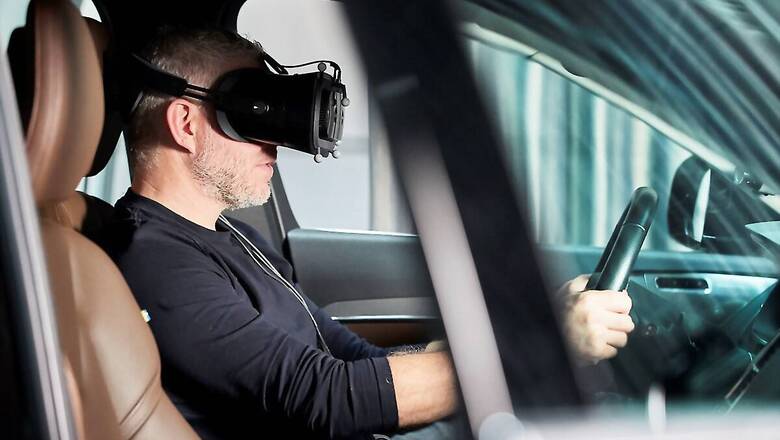
views
Vehicle safety is one of the various areas during which automotive companies are investing heavily. Over the years, automotive companies have developed many technologies, which may be helpful in preventing road accidents. These technologies, which automate, facilitate, and improve vehicular systems to assist drivers for a secure and better driving are referred as Advanced Driver Assistance Systems (ADAS).
According to a recent study by Triton marketing research, the worldwide advanced driver assistance systems (ADAS) market is about to grow to $80.97 billion by 2027 at a CAGR of 19.46%. at the present in India, premium car manufacturers like MG Motor, Volvo, BMW and Mercedes are the ones offering real advanced assistance systems like adaptive control, lane keeping assistance and automatic braking.
Currently, the Indian ADAS market is in its infancy stage and just a little percentage of vehicles is fitted with these solutions, which fall within the lower levels (1-2) of driving autonomy classification. The Automakers finds that the ADAS market in India is rising in response to the escalating need for safer driving conditions.
Here are a number of the important ADAS Technologies:
Adaptive Cruise Control
The Adaptive Cruise control (ACC) is an intelligent system, which allows drivers to take care of an optimum distance between vehicles while driving and allows vehicles to automatically adjust their speed while approaching towards other vehicles. ACC is predicated on laser sensor, which instructs the vehicle to hamper just in case of any vehicle is detected. The adaptive control system is comprised of a radar headway sensor, digital signal processor, and longitudinal controller.
The system is integrated with the engine also as breaks of the vehicles in order that when the system detects any vehicle in its roadway, it automatically slows down the vehicle and permit the vehicle to reaccelerate to the set speed when the trail is obvious. the foremost up-to-date car models with ACC system in India are MG Gloster, BMW 3 Series and Volvo S60.
Lane Departure Warning Systems
Lane Departure Warning Systems help drivers to stay their vehicles in its lane and help in reducing on-road collisions. These systems generate audio-visual alerts if the vehicle starts deviating from its lane. Lane departure warning systems use a little camera mounted near the rear-view mirror to acknowledge the striped and solid lane markings. When the vehicle starts deviating from the lane without an appropriate blinker, this system triggers an alarm to react to. Only MG’s Gloster has this feature in India.
Forward Collision Warning Systems
Forward Collision warning systems are in-vehicle electronic systems that notify the drivers just in case of forward collision with the opposite vehicle or object within the roadway. Latest collision warning systems work on radar, laser and camera systems and generate audio, visual and tactical alerts just in case of any possibility of collisions.
These systems measure the space, angular direction and relative speed between the two vehicles. A number of the forward collision warning systems are integrated with the adaptive control systems to hamper the vehicle speed when any vehicle is detected ahead.
Tyre Pressure Monitoring Systems (TMPS)
Tyre pressure may be a critical parameter in ensuring vehicle suspension and safety on the road. Uneven tyre pressure can create mileage issues, more emissions, reduced tyre tread life and should cause a tyre failure, which may end in serious road accidents. Tyre Pressure monitoring systems are critical ADAS systems because it warns the driving force if any tyre is under-inflated.
Tyre pressure monitoring systems are of two types, indirect and direct systems. Indirect TPMS systems measure rpm (revolutions per minute) of the tires and if any unprecedented rpm is measured in wheels, the drive is indicated by the system. On the opposite hand, direct TMPS systems are pressure sensors attached to every tyre, which give readings of actual pressure inside each tyre.
Parking Assistance Systems
Parking assistance systems are one among the foremost commonly used ADAS systems. MG Gloster and Citroen C5 has parking assistance systems which generally uses ultrasonic sensors, which are fixed on front and rear bumpers of the vehicle to detect the obstacles while parking and trigger alarm. The rear cam is additionally integrated with the system to supply visual assistance while parking. The system senses the space between the vehicle and therefore the obstacle.
Read all the Latest News, Breaking News and Coronavirus News here. Follow us on Facebook, Twitter and Telegram.




















Comments
0 comment